Montgomery County is rolling out a new tool to fight the opioid epidemic.
It’s called the COPE (Community Opioid Prevention and Education) trailer. When you step inside, it looks like you’re walking into a bedroom and a bathroom.
In a department video tour of the trailer, Montgomery County Police Acting Captain Lt. David McBain said it shows a lot of things that look normal in someone’s room, but that may be an indicator of a drug problem.
McBain explained the difference between “yellow indicators” and “red indicators.”
“If you find a yellow indicator like this cup here,” he said, showing a cup with a marijuana-leaf design on it, ”All we’re saying is, the person using this bathroom, they just think this is an interesting design, right? It doesn’t mean they’re a drug addict.”
But are other things that you may not see could be a big problem.
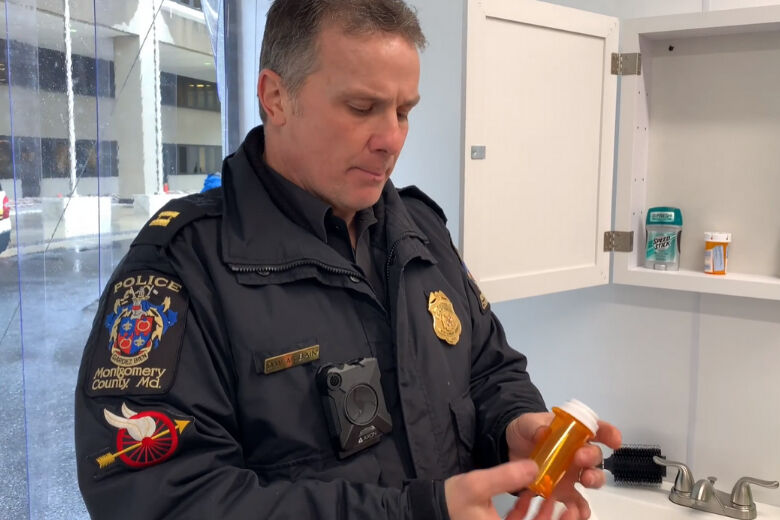
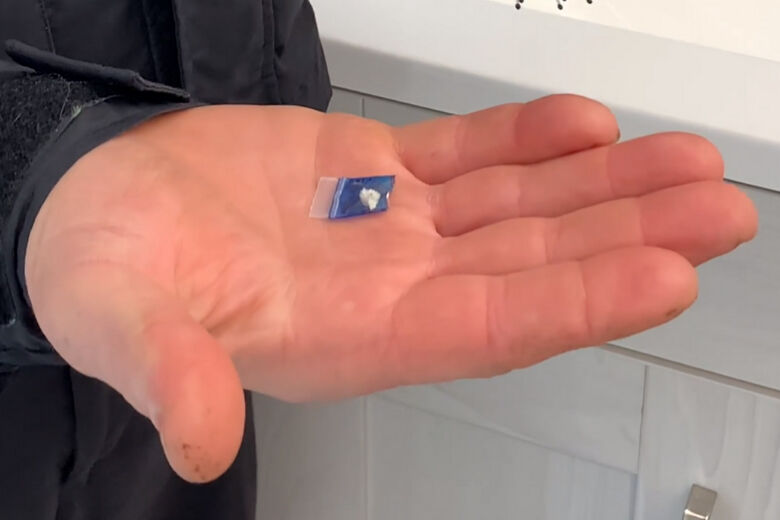
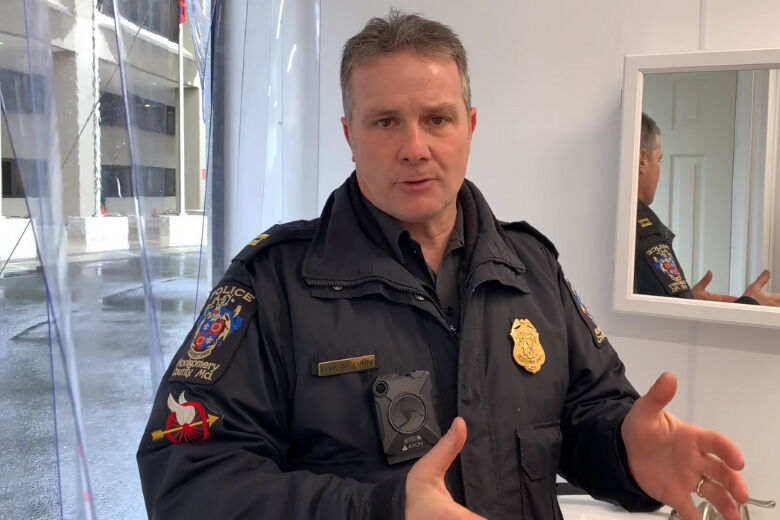
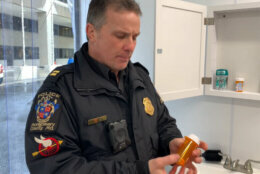
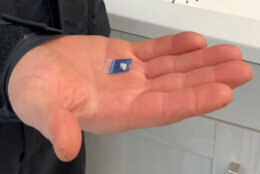

He picked up what looks like a normal hairbrush and unscrewed the cap on the end of it. He then pulled the cap out and exposed the hollow center of the brush, which holds a minuscule plastic bag with two tiny pills inside.
“This is the amount of fentanyl that can kill you. We’re not looking for big bags of drugs that you see in the movies. We’re looking for things like that. It’s very easily concealed.“
The trailer showcases a number of other examples of mundane items that may be signals of a drug problem in your home.
“What we try to remind parents, and remind people, are that the police need a search warrant to search your house — you do not. So it’s your responsibility, especially for your younger population, that we search their rooms to find things that would be indicators that maybe they have a problem with opioids,” he said.
The trailer will set up for tours at fairs, festivals, and other local events. Tours will be offered in English and Spanish.








